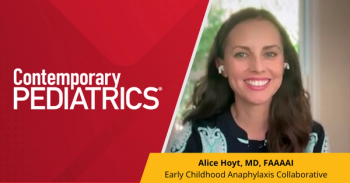
Are Children with Asthma and a Single Parent at Greater Risk for Emergency Care?
Children with asthma living in single-parent homes were found 50% more likely to return to the hospital within 12 months than children living with 2 parents. What's the real underlying cause?
A study conducted at the Cincinnati Children’s Hospital Medical Center found that children with asthma living in single-parent homes were 50% more likely to return to the hospital (ED visit, readmission) within 12 months than children living with 2 parents (odds ratio, 1.5; CI, 1.0 to 2.1) In univariate analysis, factors significantly associated with repeat hospital care included parent’s marital status, household income, and the child:adult ratio in the home. These results were reported at the November 2011 American College of Allergy, Asthma and Immunology Annual Meeting in Boston.
Approximately half of the 522 children in the cohort were younger than age 5 years and half were African-American. Single-parent households comprised 60% of the group; the same proportion received public health insurance or were uninsured.
When a parent’s time and energy are spread thin in the service of household survival, points out lead author Terri Moncrief, MD, the barriers to good asthma care increase. Characteristics of study households led by single parents were dramatically different versus those led by 2 parents.
Income in single-parent households was far more likely to be under $15,000 (46% versus 7%); childcare was more likely to take place outside the home (57% versus 39%); scores on the Kessler 6 (K6) screening scale for non-specific psychological stress were higher (mean K6 score 5.6 versus 3.9); and, the child:adult ratio was lower (mean child:adult ratio of 1.8 versus 1.2). All values were highly significant (P< .0001).
Single Parent or Household Income?
As compelling as these differences are, in a multivariate analysis that included other elements potentially related to household status, single parenthood itself was no longer significant and household income was associated with risk of ER visits and readmission at an odds ratio of 1.9 (95% CI, 1.1 to 3.6).
Dr Moncrief believes that income is not likely to be the real factor behind the findings. She thinks it’s an adherence issue. A young child’s adherence to asthma therapy depends on a reliable adult to manage the medication. The daily stress of a single-parent household, Moncrief observes, works against consistent use of maintenance medications (inhaled corticosteroids with or without long-acting beta agonists). Children in the study did have access to inhalers. Making sure a child uses an inhaler on schedule, however, may not be a priority among competing demands such as raising more than 1 child, working multiple jobs with varying schedules, and juggling childcare outside the home.
What Do the Results Suggest?
PediatricsConsultantLive.com asked Dr Barbara Yawn, MD, Director of Research at the Olmsted Medical Center and Adjunct Professor in the Department of Family and Community Health at the University of Minnesota, Rochester, Minnesota, to comment on what Dr Moncrief’s preliminary results suggest for daily pediatric practice.
“Critical stressors are frequently compounded in low income households,” Dr Yawn notes, “and unfortunately, as physicians, there is little we can generally do to directly relieve that pressure. But, there are things we can and should do to try to work with the situation.” Dr Yawn offers suggestions:
• Make sure the child is taking the least expensive/most effective/easiest to take medication or group of medications that insurance will cover or that the family can afford.
• Educate the parent about the purpose of the child’s medication(s) or at least, make them aware of the importance of the medication to the child’s health.
• When possible, have someone from your staff (yourself or a credentialed surrogate) observe the child’s inhaler technique and made corrections when needed.
Cincinnati Children’s Hospital Medical Center is a tertiary care center that sees 90% of children who require emergency treatment or hospitalization for asthma in 8 Cincinnati-area counties. This study was a secondary analysis of data collected on children treated there. Dr Moncrief and her colleagues plan a follow-up study to specifically examine adherence issues in the same cohort.
Newsletter
Access practical, evidence-based guidance to support better care for our youngest patients. Join our email list for the latest clinical updates.




